Xiaomi Mi Mix 3 review: a powerful flagship with a sliding twist on the selfie cam
Xiaomi's new flagship brings plenty of Eastern promise – and a clever pop-up camera system

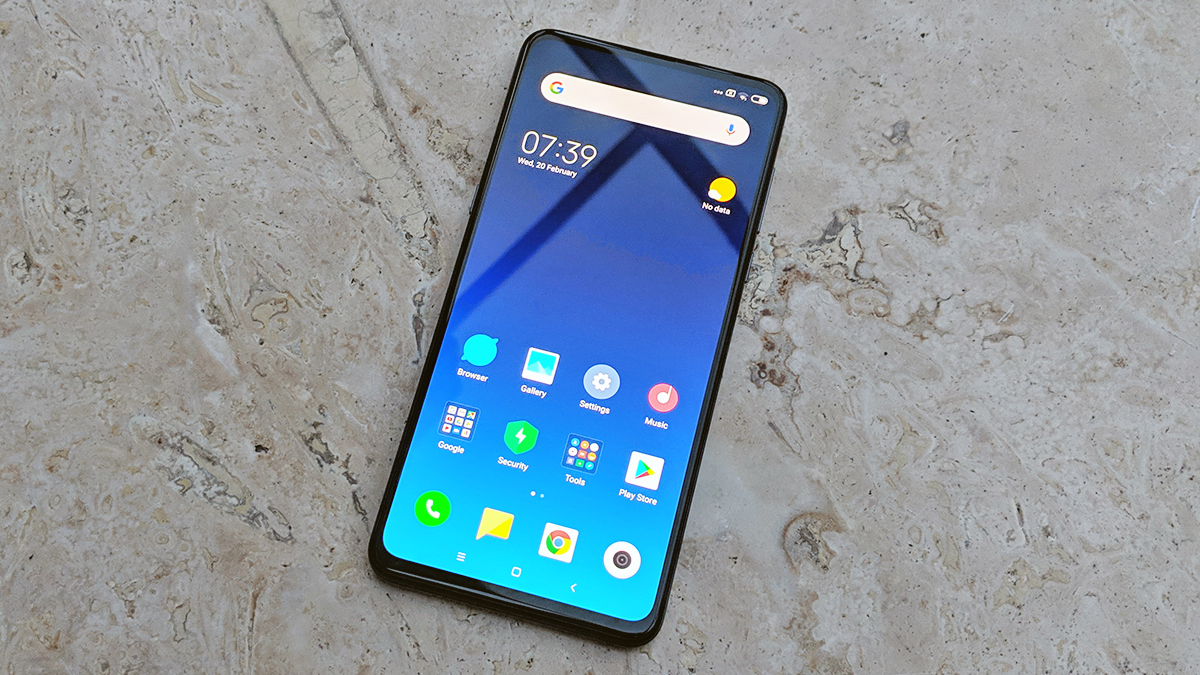
It has both pros and cons, but taken as a complete package the Xiaomi Mi Mix 3 is one of the best mid-to-upper-range Android phones on the market in 2019
-
+
Stylish design
-
+
Nippy performance
-
+
No notch
-
-
So-so camera quality
-
-
Patchy Android skin
-
-
Slider won't suit everyone
Why you can trust T3

This is the T3 review of the Xiaomi Mi Mix 3, one of the latest batch of handsets from the Chinese giant. We've been putting the Xiaomi Mi Mix 3 through its paces in all the areas that matter – from camera quality to software design – so we can help you make an informed decision about whether this is the right phone for you.
Let's not forget the Xiaomi Mi Mix 3 is up against some stiff competition in this particular part of the market: phones like the Honor View 20 and the OnePlus 6T are also fighting for your hard-earned cash at this sort of price point.
- These are the very best smartphones money can buy in 2019
- Read through our picks for the best Android phones on the market
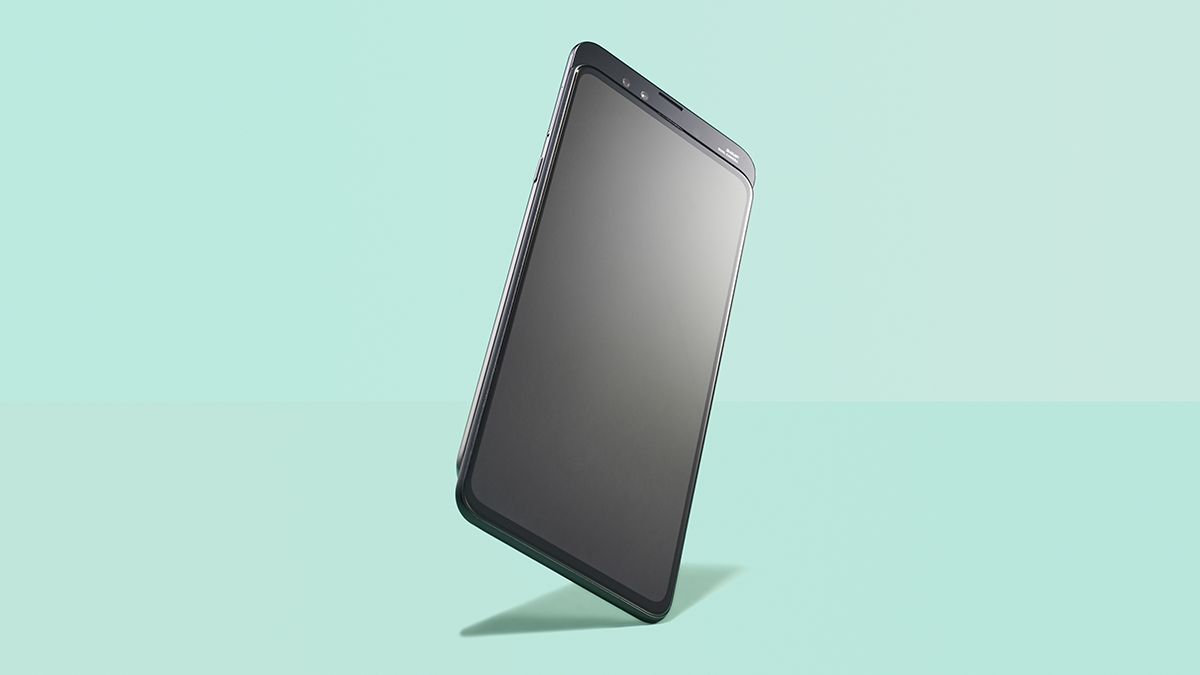
Xiaomi Mi Mix 3 review
When it comes to the big Chinese phone makers trying to get their wares sold in Europe and the US, what started as a trickle is now a flood: we're up to our knees in water (metaphorically speaking) as handsets from the likes of Huawei, Xiaomi, Oppo and others are stacking up on these shores.
And the buying propositions have become more and more compelling as time has gone on. The Xiaomi Mi Mix 3 brings with it some top-level specs at a distinctly mid-range price, and if you're in the market for an Android phone then you have to have this on your shortlist, no matter what your needs or budget.
Xiaomi Mi Mix 3: price, availability and specs

Xiaomi Mi Mix 3 review
The Xiaomi Mi Mix 3 is available now, yours for £499 direct from Xiaomi. You might be able to get it cheaper elsewhere if you shop around at third-party retailers.
Specs-wise, we're looking here at a spacious 6.39-inch, 1080 x 2340 pixel Super AMOLED display, with a Qualcomm Snapdragon 845 processor inside and 6GB of RAM to keep the phone's software moving along swiftly. That processor has been topped by the Snapdragon 855 this year, but you've still got a very nippy phone here.
For storage there's 128GB of space on board, but no memory card slot, so note that you can't extend that any further. Around the back of the phone there's a dual-lens 12MP+12MP rear-facing camera, and a fingerprint sensor (which isn't under the screen, as it is on some of the other flagships of 2019).
Get all the latest news, reviews, deals and buying guides on gorgeous tech, home and active products from the T3 experts
Xiaomi Mi Mix 3: selfie camera
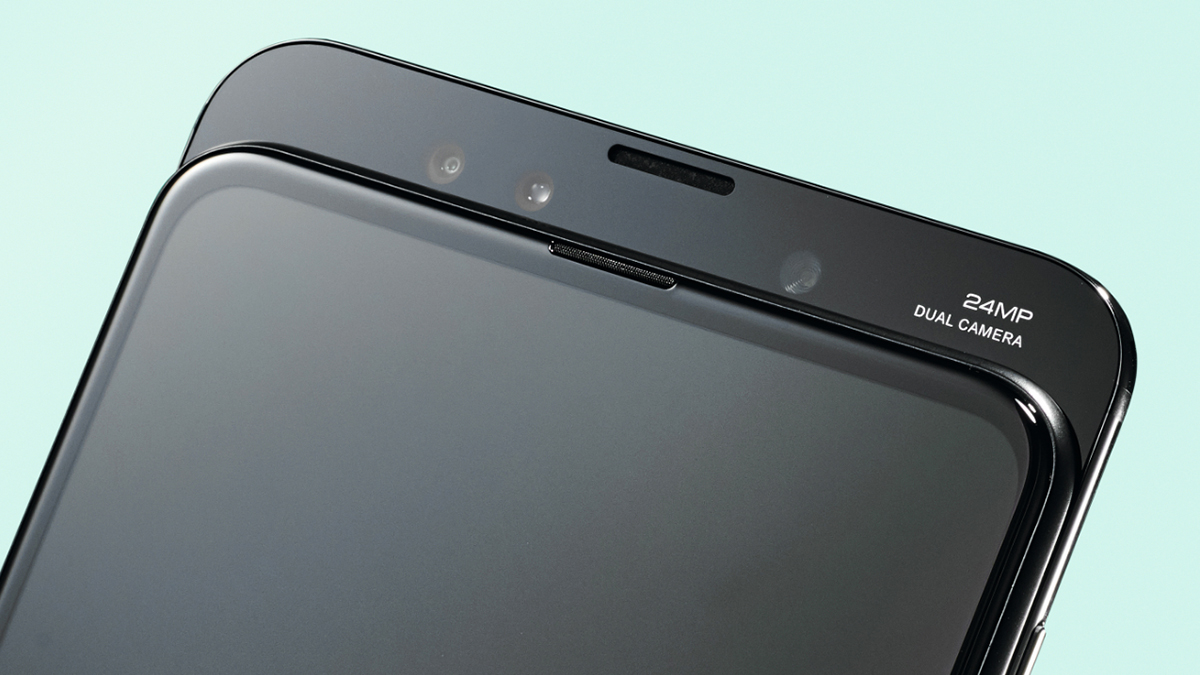
Xiaomi Mi Mix 3 review
As far as unique selling points go, the major one with the Xiaomi Mi Mix 3 is the sliding mechanism you use to reveal the front-facing selfie camera – the whole screen snaps down a little to reveal a dual-lens, 24MP+24MP camera. It's not the first phone to do this, but it's one of the best.
It might sound gimmicky, but it means no need for a notch – the display is a gorgeous one, unblemished by any black holes or rectangles protruding in from the edges. With minimal bezels, it's one of the best screens we've set eyes on lately.
Are the notch-free aesthetics worth the effort of sliding out the camera every time? It's mostly a personal preference but we liked it more than we thought we would: it's kind of cool to have that tactile mechanism to call on whenever you need to take a selfie or make a video call, and it also means the camera gets launched instantly, without any fiddling through apps or menus. The mechanism itself is smooth and satisfying – whether it'll stay that way over years of use we can't say, but the early signs are good.
The sliding mechanism means Xiaomi can fit in a dual-lens 24MP+2MP configuration for the front-facing camera, unhampered by the restrictions of a notch. The extra lens doesn't really translate to extra quality though, unfortunately, as we'll get on to.
Xiaomi Mi Mix 3: design
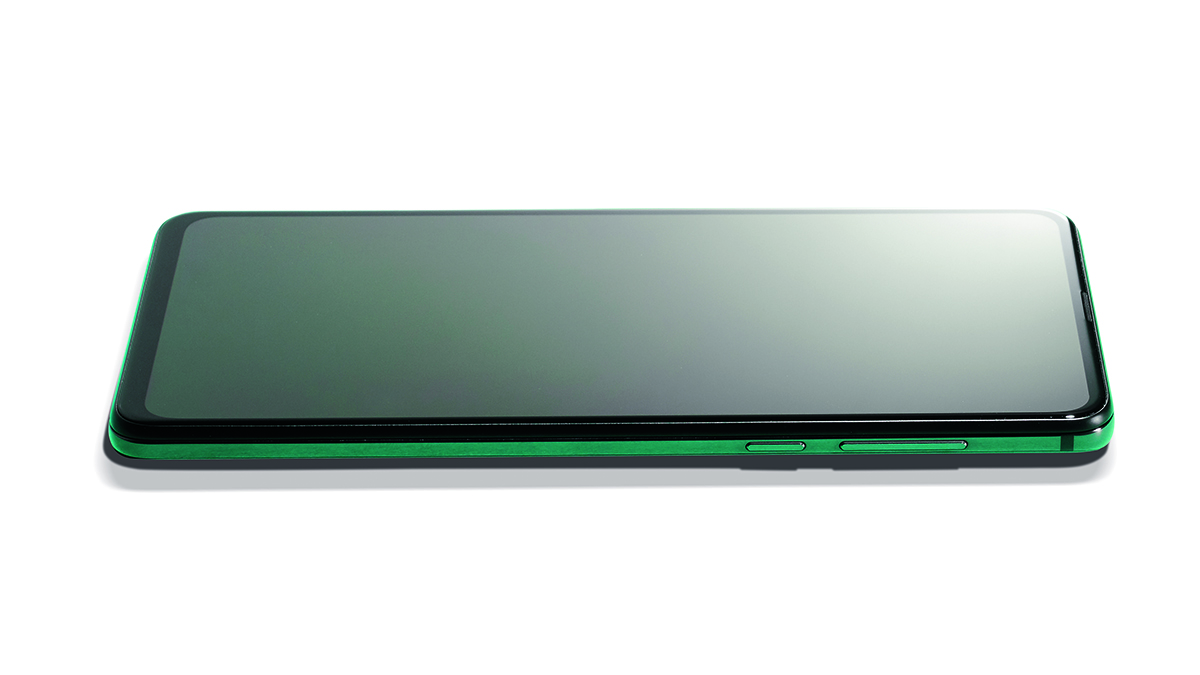
Xiaomi Mi Mix 3 review
Xiaomi has put together a sleek-looking polished phone here, particularly if you're peering at it from the front. Around the back, it's a pleasingly minimal design – the Mi Mix 3 isn't going to win any awards for originality, but we like the way it's been put together. Your colour choices are Sapphire Blue and Onyx Black.
Perhaps because of that slider, the phone is slightly thicker (8.5mm) and slightly heavier (218g) than a lot of its rivals – it doesn't feel like a thick or a heavy phone in the hand, but it carries a bit more bulk than most handsets at the top end of the market.
Add in that large 6.39-inch display (using a very tall 19.5:9 aspect ratio) and this isn't a phone we'd recommend for people with particularly small hands (or small pockets). The Xiaomi Mi Mix 3 is just about usable with one hand, but most of the time you're going to need two hands to get stuff done on the handset.
Another consequence of the slider mechanism is that the phone has no IP rating for waterproofing or dustproofing – so this might be one phone that absolutely needs a protective case to go with it. It's one of those trade-offs you often see with smartphones at a mid-range price, and it's one that may or may not bother you.
Wireless charging is available, which means you can pop this down on a charging mat and forget about it. As with many phones these days though, the 3.5mm headphone jack has been ditched, so you'll need an adapter (or a new pair of headphones) if you want to listen to your tunes and podcasts on the Xiaomi Mi Mix 3).
Xiaomi Mi Mix 3: performance and use
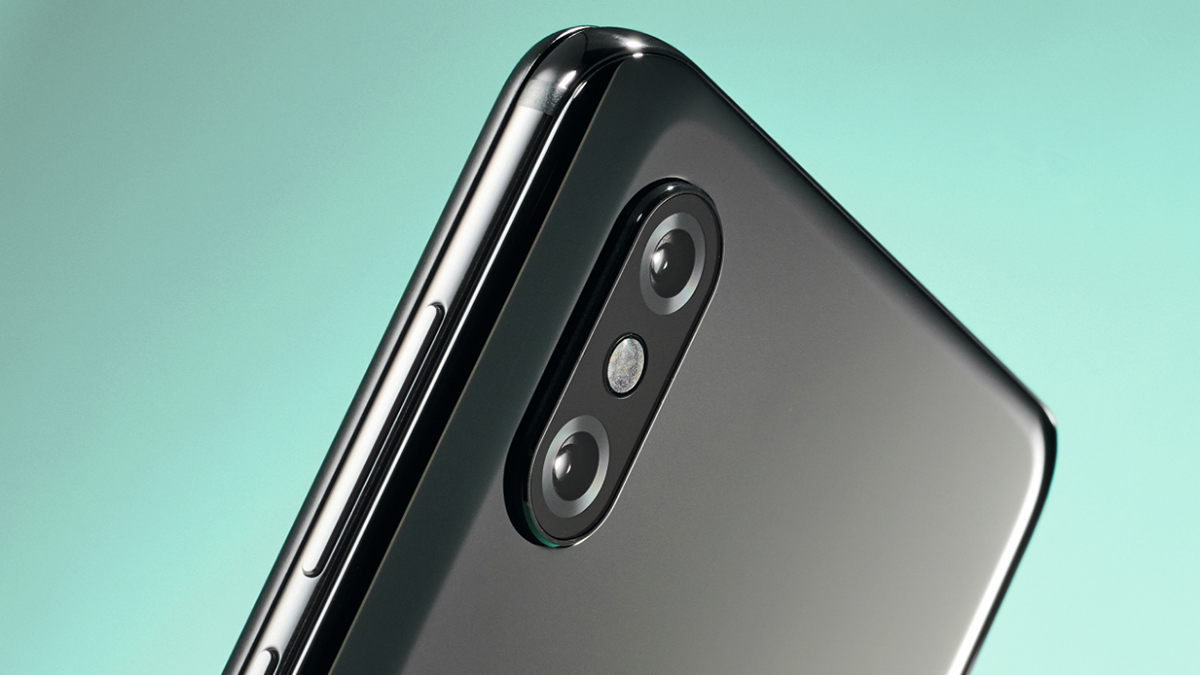
Xiaomi Mi Mix 3 review
The Xiaomi Mi Mix 3 mostly impresses on paper, and it's the same story in actual use: it's a pleasure to use and it's a phone that'll have friends and family peering over in admiration. Xiaomi has managed to put together a polished phone for a decent price, and we definitely enjoyed our time with it.
Software can often be a drawback with phones from Chinese firms, as they tend to clutter up Android with a number of unnecessary apps and flourishes. Xiaomi's own take on Android isn't too bad, but we found the custom graphics a bit dull, and the app drawer gets removed so all your app icons have to be somewhere on the home screens.
Of course you can always install a third-party Android launcher to revamp the interface but most people won't want to go to the effort. The software is based on Android 9 Pie, which is a plus point, but it's a bit fiddly and frustrating otherwise – certainly no match for the OSes on board phones from Google, Samsung and OnePlus.
Thankfully, once you get into the apps, everything runs smoothly and lag-free. We tested the Xiaomi Mi Mix 3 on all the popular apps, as well as a handful of games, and it coped well with everything we threw at it. Other 2019 phones might beat it in terms of benchmarks, but in day-to-day use it blazes through tasks.
Camera performance is usually a key concern for potential phone buyers, and we're pleased to report the Xiaomi Mi Mix 3 does well in this regard. The shutter response is fast and the pictures are very good – as you would expect, noise creeps in in lower light, but the Mi Mix 3 managed to do well in most conditions. It's not the Pixel 3, but then it costs a lot less, so take your choice.
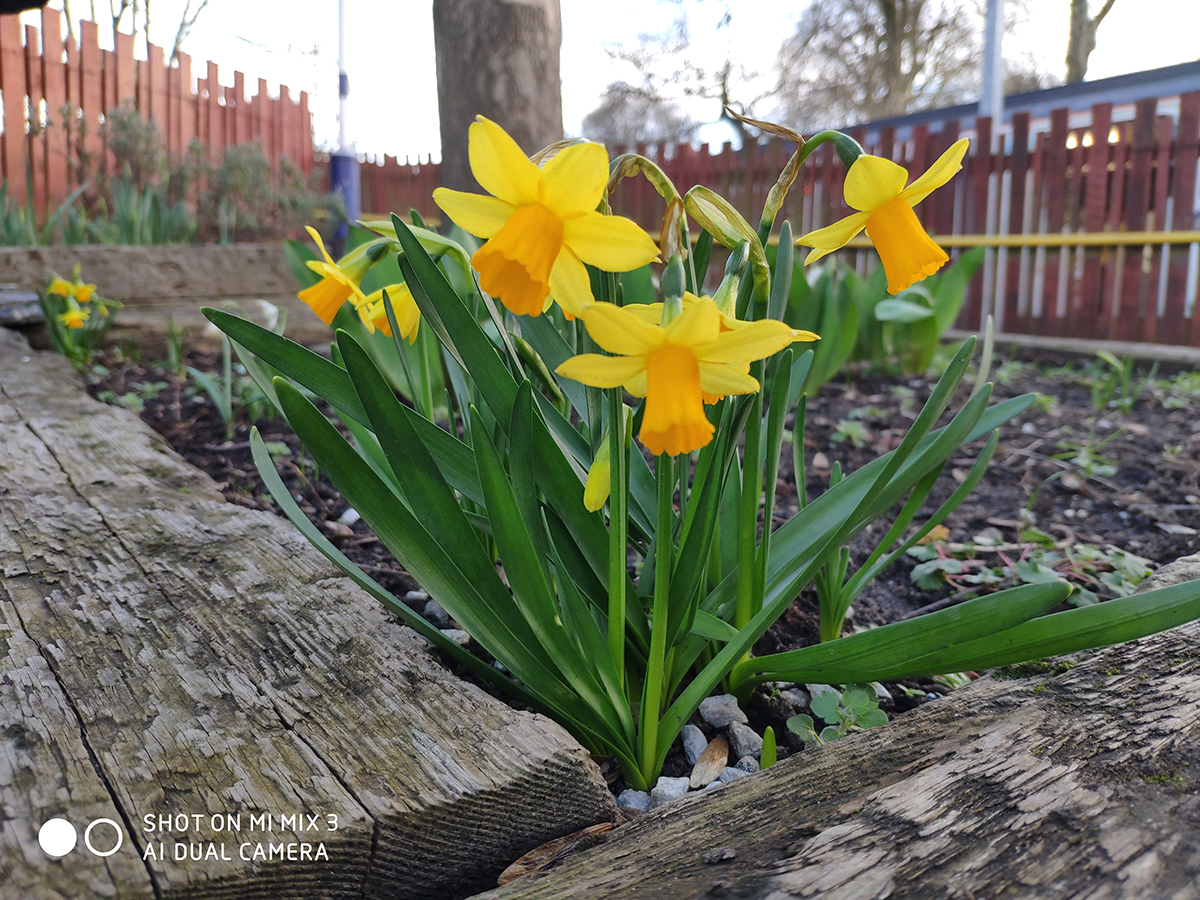
The camera copes well with details in close ups.

In most lighting situations, colours are bright and vivid.

The HDR mode does a good job of balancing out dark and light areas in a shot.

The Xiaomi Mi Mix 3 is capable of taking some very decent-looking pictures indeed.

The low light performance isn't the best we've ever seen, but we'll take it.
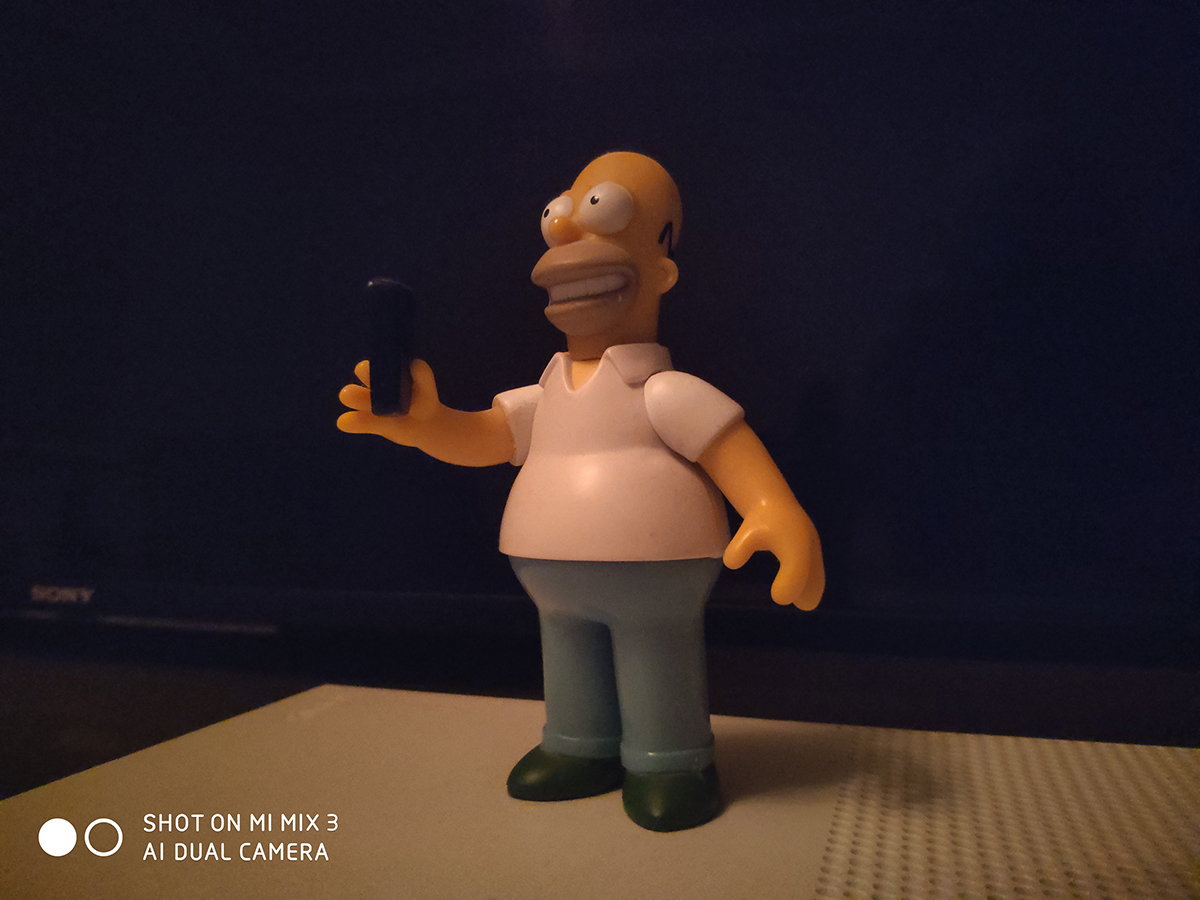
Even in very dark conditions like these, usable shots can still be had.
The 2x optical zoom available on the rear-facing camera really comes in handy for getting closer to the action, and we found the optional HDR mode does a good job of keeping dark and light areas of a picture visible. There's also an AI mode that will choose the best scene setting for what your phone is pointing at, though we didn't really use it – it didn't seem to make much of a useful difference.
When it comes to the selfie camera, the results weren't quite as eye-catching or as sharp, but you won't be shooting landscapes with this camera. Considering the front-facing camera is housed in a separate section of the phone, we thought the quality might be a little better, but it's really nothing special.
As for battery life, you can expect the usual day of use out of the Xiaomi Mi Mix 3: we usually had around 15-20 percent left by bedtime during our testing, and that's with a reasonable amount of mixed use during the day. Watching Netflix knocked the battery level down by about 10 percent per hour, so think 10 hours of video watching.
That's about par for the course with modern-day smartphones – the battery won't let you down but isn't going to stretch to a second day either. Remember that we're testing a brand new phone too, so that battery performance may well degrade over time.
Xiaomi Mi Mix 3: verdict
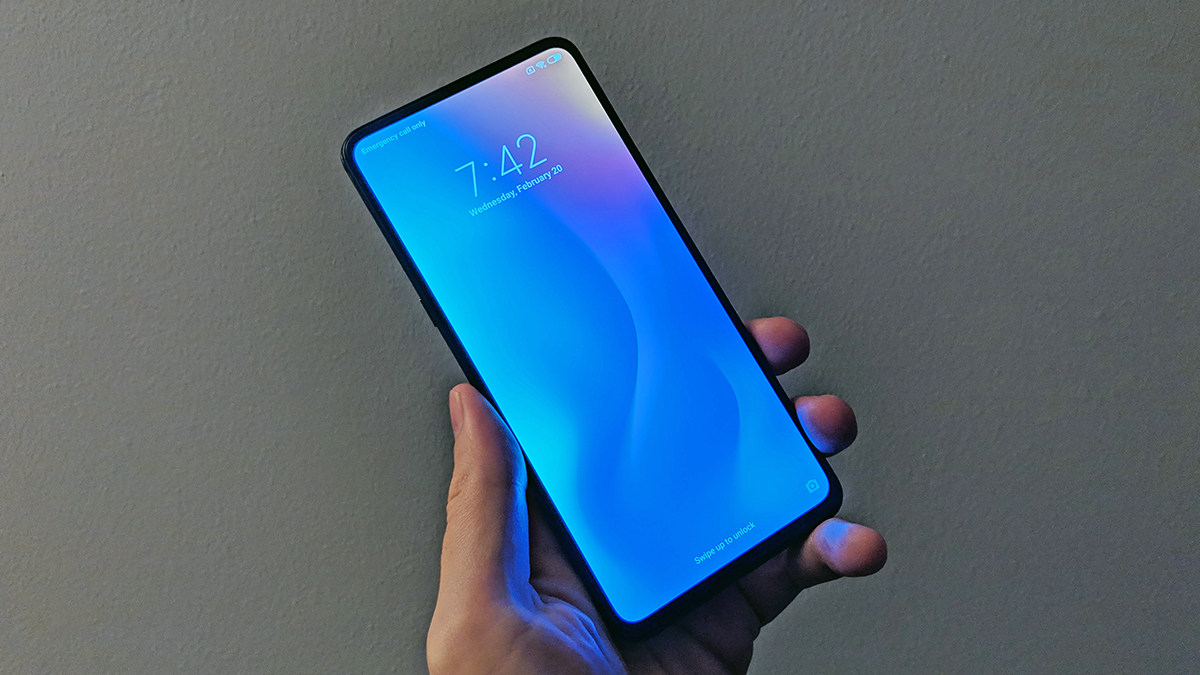
Xiaomi Mi Mix 3 review
Every phone is a balance between its price and everything else, and we'd say the Xiaomi Mi Mix 3 manages that balance better than most of its rivals. For a relatively affordable price (at least in smartphone terms), you get a stylish, fast, and capable handset that's going to last you for years to come.
We certainly wouldn't worry about camera quality, or performance, or battery life, or the screen if you're picking up this phone – they're all very good. The trade-offs are in more minor areas, like a lack of waterproofing, and a few software niggles that might not be to your liking.
With so much competition at this price range, it's perhaps that sliding camera – and the notch-free screen you get as a result – which is going to tempt you into getting the Xiaomi Mi Mix 3 for yourself. It's something different in a smartphone market where handsets are finding it difficult to stand out.
Dave has over 20 years' experience in the tech journalism industry, covering hardware and software across mobile, computing, smart home, home entertainment, wearables, gaming and the web – you can find his writing online, in print, and even in the occasional scientific paper, across major tech titles like T3, TechRadar, Gizmodo and Wired. Outside of work, he enjoys long walks in the countryside, skiing down mountains, watching football matches (as long as his team is winning) and keeping up with the latest movies.
